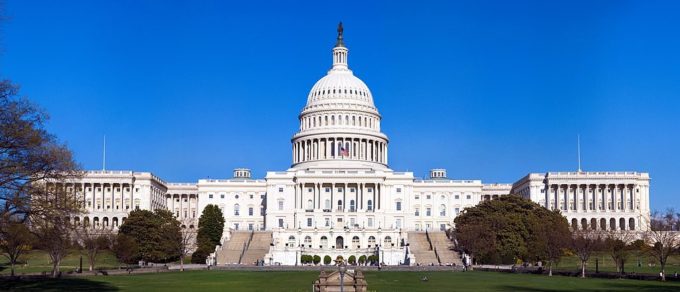
Senate Announces Bipartisan Bill to Regulate Online Political Ads
By Jaehwan Park – Edited by David Macauley
Honest Ads Act, S. 1989, 115th Cong. (2017).
On October 19, 2017, Senators Mark Warner (D-VA), Amy Klobuchar (D-MN), and John McCain (R-AZ) announced S. 1989 (“Honest Ads Act”) to regulate political advertisements on the internet. A direct response to disclosures of Russian meddling in the 2016 election, the bill would subject online advertising to the transparency rules that govern TV, radio, and print advertising. Companion legislation, H.R. 4077, was introduced in the House of Representatives by Derek Kilmer (D-WA) and Mike Coffman (R-CO).
Currently, Section 304 of the Federal Election Campaign Act of 1971, 52 U.S.C. § 30104, regulates only broadcast television, radio, cable, and satellite communications, leaving online platforms free from the disclosure requirements for political advertising that are imposed on traditional media. After troubling disclosures that Facebook , Twitter, and Google had sold propaganda advertisements linked to Russia, the Honest Ads Act was announced as the first in an anticipated wave of legislative and regulatory proposals to prevent foreign influence of the American electorate.
The bill would amend Section 304 to expand the definition of “electioneering communication” to include “qualified internet or digital communications,” namely communications placed on online platforms in exchange for a fee. The bill would also add a new subsection to Section 304 which would subject online platforms hosting such communications to numerous disclosure requirements: online platforms with 50 million or more unique monthly US visitors would be required to maintain public files of all requests to purchase political advertisements by a person whose aggregate purchases exceed $500. Each public file would contain a copy of the advertisement, a description of the target audience, the number of views generated, the dates and times of publications, the rates charged, and information of the purchaser. The bill would also amend Section 319 of the Federal Election Campaign Act of 1971, 52 U.S.C. § 30121, to require online platforms to make “reasonable efforts” to ensure that foreign entities are prevented from purchasing political advertisements, directly or indirectly.
Center for Competitive Politics (“CCP”) Chairman Brad Smith criticized the bill as one that would only impose more broad burdens on Americans’ speech rights while purporting to target interference by foreign interests. Whereas record-keeping burdens are relatively manageable for traditional operators, they would be extraordinary for online advertising, and the “reasonable efforts” requirement would compound that burden with an unprecedented imposition of liability. CCP forecasted that online platforms would simply stop selling advertising at lower dollar amounts, shutting off a major outlet for small grassroots groups. TechFreedom President Berin Szóka agreed that the bill is problematic in multiple respects and that it would create a “slew of chilling effects” in spite of its laudable goals. Writing for Bloomberg View, Russian journalist Leonard Bershidsky called the bill one that “Russian trolls would love,” as malicious actors could easily structure their work in a way that no rules are formally violated—foreign interests could set up US servers and work through VPNs, obfuscating payments through services such as PayPal.
Although both Facebook and Twitter recently announced plans to increase transparency around political advertisements on their platforms, Senator Amy Klobuchar responded in an official statement that such announcements are “no substitute for updating our laws.” It remains unclear whether online platforms’ self-regulation measures will be sufficient to head off the passage of the Honest Ads Act and other lawmaking that is likely to follow.
Jaehwan Park is a 3L student at Harvard Law School.